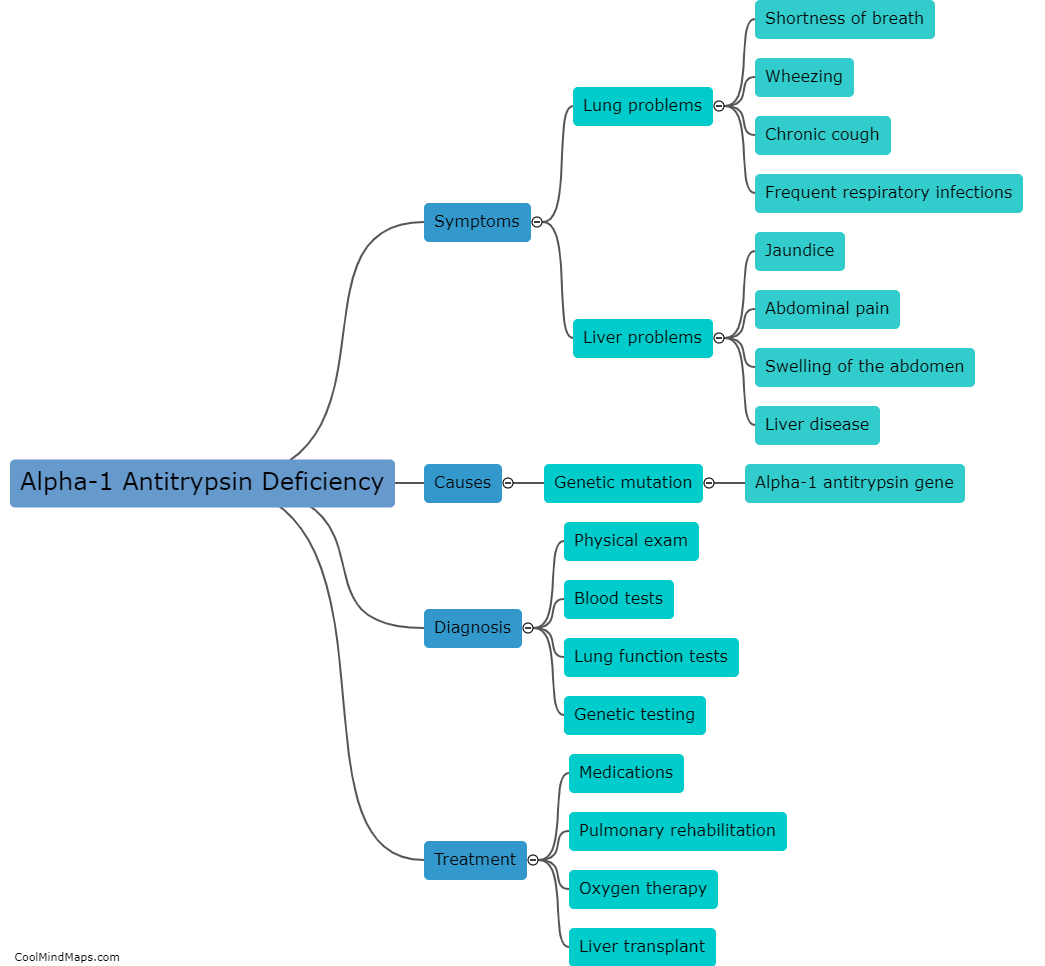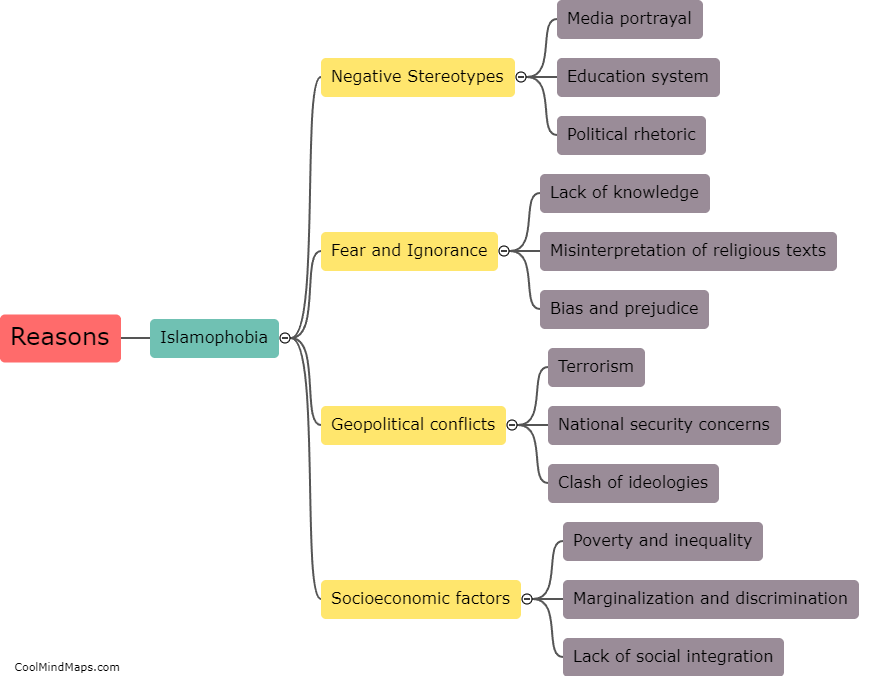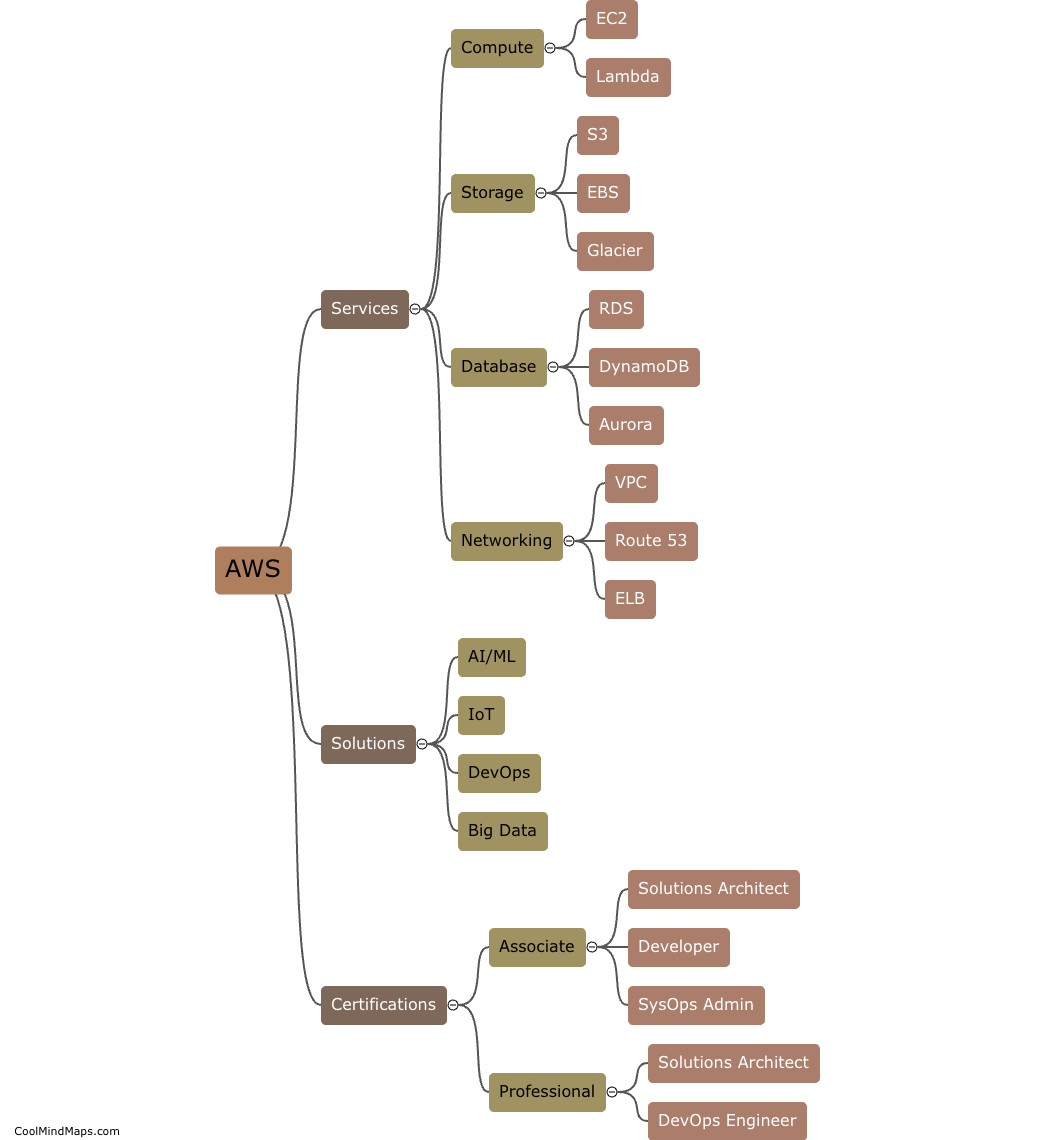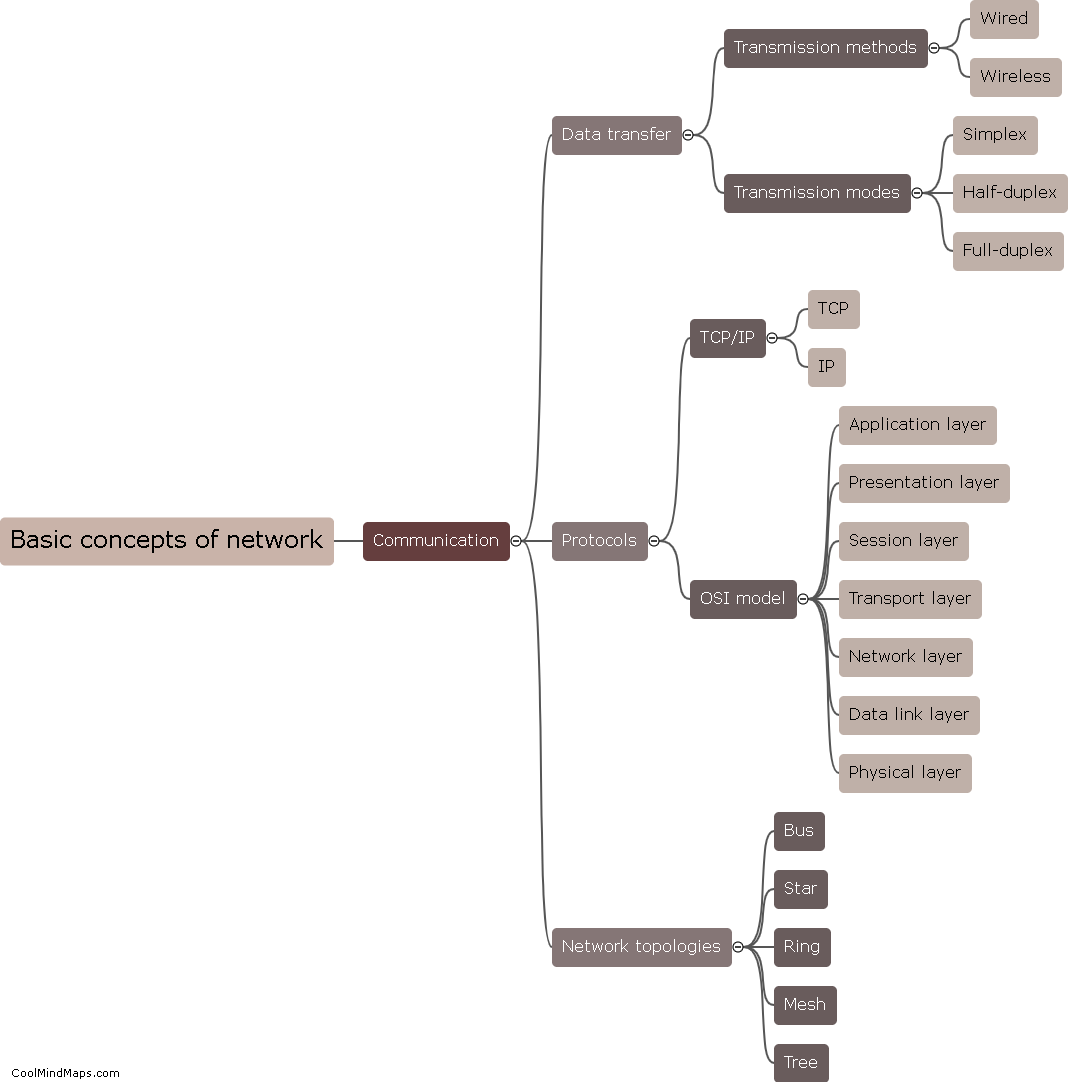What is alpha-1 antitrypsin deficiency?
Alpha-1 antitrypsin deficiency (AATD) is a genetic disorder that affects the liver and lungs. This condition occurs when there is a deficiency or dysfunction in the production of alpha-1 antitrypsin (AAT), a protein primarily produced in the liver and released into the bloodstream. AAT plays a crucial role in protecting the lungs from damage caused by enzymes called proteases. In AATD, the insufficient levels of AAT result in an imbalance between proteases and their inhibitors, which leads to the destruction of lung tissue and increased risk of respiratory conditions, such as chronic obstructive pulmonary disease (COPD) and emphysema. Additionally, AATD can also cause liver disease in some individuals. Early detection and management are essential for individuals with AATD to prevent or delay the progression of these associated conditions.

This mind map was published on 28 October 2023 and has been viewed 98 times.











